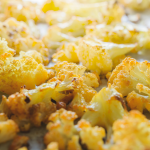
The Misunderstood Egg
Recently, while reviewing a patient’s labs in the office, I was shocked when she proclaimed her primary physician told her she needed to stop eating eggs because it was raising her cholesterol. I was surprised to hear that someone was still giving this advice. I know some in the lay population have not gotten the memo, but I was surprised a physician would still be that misinformed.
Unfortunately, I continue to hear this advice from patients: “To reduce your cholesterol, eat fewer eggs and eat less meat.”
There has been a lot of misinformation about eggs. Hopefully, this article will help to straighten things out.
First, I thought I would share some fun facts about eggs to keep this light, and then I will get into all the nutritional facts and research why you need to reconsider adding eggs to your diet if you have reduced, avoided, or removed them altogether.
Eggs can be considered a super-food.
One egg provides 6 grams of protein and every nutrient you need, including vitamins like A, D, and E, minerals including selenium, iron, and disease-fighting nutrients like choline and lutein. They also have a fairly low-fat content at about 1.6 gm per egg.
Eggs have been used as the gold standard for protein intake.
Many protein sources are compared to eggs. When you start your day with this protein-packed, nutrient-dense food, you are also more likely to have a better day of eating. In a study comparing participants eating eggs for breakfast versus cereal, juice, and toast, those eating the eggs were more satisfied throughout the day and less likely to overeat carbohydrates later in the day.
While in the past, we were told eggs were high in cholesterol, and we should avoid the yolk.
This has been shown to be untrue. First, dietary cholesterol does not equate to elevated blood cholesterol; we have now shown this not to be true. Several studies have shown that eggs improve LDL, the so-called “bad cholesterol,” by shifting individuals from the LDL pattern B, the more dangerous small and dense LDL cholesterol particles, to pattern A LDL, which is not associated with atherosclerosis. Egg whites are the least flavorful part of the egg.
In addition to the nutrient benefits listed above, the yolk Is also a great source of Omega-3s, something many of us do not get enough of in our diet.
The color of the egg does not matter. Brown eggs are not more nutritious than white eggs.
Different types of hens lay different colored eggs. Some even lay green and blue eggs. It is all related to strain and genetics. The breed of hen determines the color of the shell. White egg-laying hens include Ancona chickens, 55 Flowery Hens, Leghorns, Friesian, and Cinnamon Queens. Brown egg layers include Rhode Island Reds, Plymouth Rocks, Chanteclers, Buckeyes, Delaware, and Red Stars.
The shell does need to be taken into consideration, though. The harder the shell, the more calcium deposition. This can be
associated with a healthier, well-fed hen.
Turns out the yolk can also give some insight into the health of the hen. Rich, golden-colored yolks come from free-range chickens with a more varied diet. The color is associated with carotenoids, omega-3s, and fat-soluble vitamins.
It is always best to purchase eggs from pasture-raised, free-range chickens. These hens are allowed to roam freely and eat various seeds and insects, making their eggs more nutrient-dense.
Eggs require minimal preparation. When you purchase eggs, you do not need to wash them. Washing eggs can remove the “Bloom” protective layer, allowing bacteria to seep into the shell.
When cracking the egg, do not do so on the side of a bowl. Hit the egg flat on the counter and separate it to open. This will reduce the chance of getting shells into the egg. If you get a piece of shell in the bowl, use a small spoon to pull it out by dragging it on the side of the bowl.
The simplest way to make an egg is hard-boiled. This also provides an easy grab-and-go snack or breakfast. Bring a pot of water to a boil and drop the eggs into the water using a slotted spoon. Simmer for 11-12 minutes for a yolk cooked all through and up to 15 minutes for a completely firm yolk. Immediately place the cooked eggs into ice-cold water and sit until the shells are cooled. You can store the cooked eggs in the refrigerator or peel the cooled eggs underwater, careful not to remove chunks of the white. Cooked eggs can be stored in the refrigerator for up to a week.



